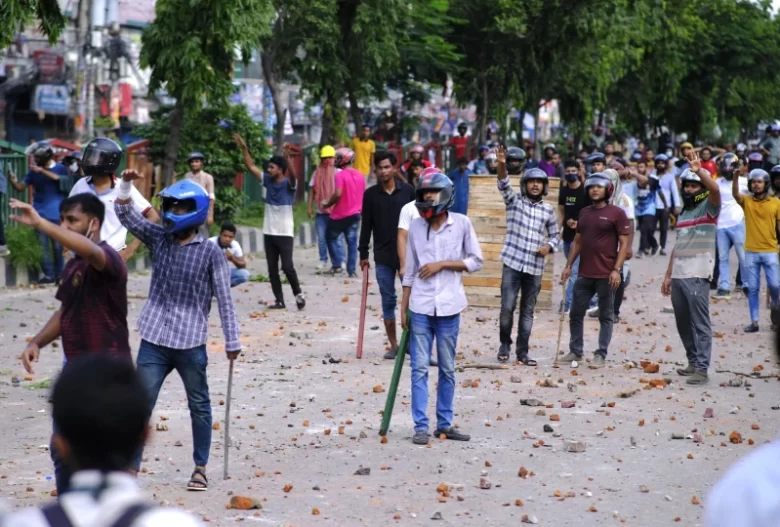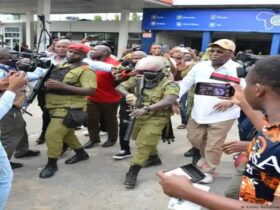Bangladesh authorities called for all universities to shut down on Wednesday after violent protests over government job allocations left at least six people dead.
The unrest also prompted a police raid on the headquarters of the main opposition party.
A university official, speaking anonymously to The Associated Press, reported that Dhaka University, which was at the heart of the violence, has decided to suspend classes and indefinitely close its dormitories.
The official was not authorised to speak to the media.
To ensure student safety, the University Grants Commission has urged all public and private universities to close until further notice.
However, the request does not carry legal weight, and it remains uncertain how many universities will follow it.
At least six people were reported dead on Tuesday due to widespread violence as student protesters clashed with pro-government activists and police.
Violence occurred in the capital, Dhaka, as well as in Chattogram in the southeast and Rangpur in the north.
During the night, Dhaka police conducted a raid on the headquarters of the opposition Bangladesh Nationalist Party, alleging its involvement in the violence.
Speaking to reporters, Detective Chief Harun-or-Rashid announced that police had arrested seven members of the party’s student wing for allegedly setting fire to two buses on Tuesday.
He further revealed that detectives recovered 100 crude bombs, 500 wooden and bamboo sticks, and several bottles of gasoline during the raid.
Accusing the government of diverting attention from the protests, senior BNP leader Ruhul Kabir Rizvi claimed that the raid was “staged”.
Late last month, protests erupted demanding the removal of an allocation that reserves 30% of government jobs for relatives of veterans from Bangladesh’s 1971 war of independence.
The protests turned violent on Monday as demonstrators at Dhaka University clashed with police and counter-protesters from the student wing of the ruling Awami League party, resulting in 100 injuries.
Overnight, violence spread to Jahangirnagar University in Savar, just outside Dhaka, and similar incidents were reported across the country on Tuesday.
Law enforcement was present on campus, while paramilitary border forces monitored the streets in Dhaka and other major urban areas.
Demonstrators argue that the veterans’ families quota is unfair and primarily benefits supporters of Prime Minister Sheikh Hasina, whose Awami League party was at the forefront of the independence movement.
Ruling party officials assert that the opposition is supporting the protests, whereas demonstrators insist that they remain politically independent.
The allocation system designates government jobs for women, people with disabilities, and ethnic minorities.
However, protesters are focused solely on abolishing the provisions for veterans’ families.
Although job prospects in Bangladesh’s private sector have increased, many individuals still favour government positions due to their perceived stability and better pay.
Annually, approximately 400,000 graduates vie for just 3,000 civil service jobs available through the exam.
The allocation system was suspended in 2018 due to a court ruling that followed a major wave of student protests.
However, last month, Bangladesh’s High Court reversed that ruling, igniting anger among students and prompting a new round of demonstrations.
The Supreme Court temporarily suspended the High Court’s order for four weeks last week, with the chief justice encouraging students to resume their classes. The protests however continued unabated.
On Tuesday, Hasina defended the allocation system, stating that veterans deserve the utmost respect for their sacrifices in 1971, regardless of their current political ties.
“Setting aside their own aspirations and leaving behind their families and everything they knew, they joined the war with whatever resources they had,” she stated during an event at her office in Dhaka.









Got a Question?
Find us on Socials or Contact us and we’ll get back to you as soon as possible.